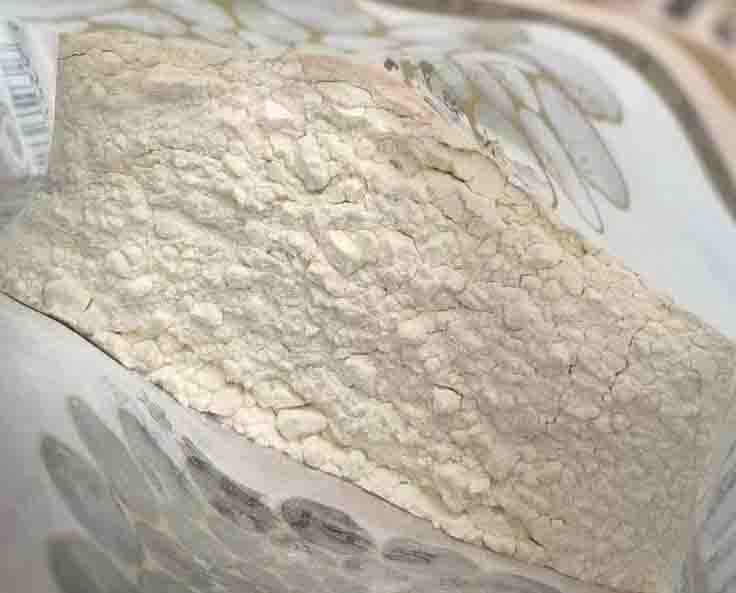Bentonite for Drilling
What is Bentonite Used for In Drilling?
During the drilling process, cutting tools are employed to break through the subsurface formations. These tools generate heat due to friction, which can lead to excessive wear and reduce their efficiency. Bentonite for Drilling, when mixed with water to form a drilling fluid, acts as a lubricant. It reduces the friction between the cutting tools and the formation being drilled, thereby minimizing heat generation and extending the lifespan of the tools. The lubricating property of bentonite ensures smooth and efficient drilling operations.
The bentonite for drilling creates a hydrostatic pressure within the borehole. This pressure, exerted by the fluid column, acts as a barrier that hinders the penetration of unwanted fluids, such as water or gas, into the borehole. By preventing the influx of these fluids, bentonite helps maintain the stability of the borehole walls and prevents potential issues such as collapse or contamination.
Properties of Bentonite Slurry Drilling Fluid
Bentonite for drilling fluid possesses several important properties that make it highly suitable for mud rotary borehole drilling. Bentonite slurry has the ability to create a highly viscous and slippery gel-like consistency. The viscosity of the slurry refers to its resistance to flow.
We can manipulate the amount of water or bentonite added to the slurry, the viscosity can be adjusted. Adding water to the slurry makes it thinner or less viscous, while adding more bentonite increases its thickness or viscosity. This flexibility in viscosity control is advantageous in drilling operations because it allows the drilling fluid to be customized based on specific drilling conditions and requirements.
Bentonite slurry used as a drilling fluid possesses valuable properties for mud rotary borehole drilling. Its viscosity can be adjusted to create a lubricating and suspending medium that minimizes friction, carries drill cuttings, and maintains stability. The gel-like consistency of the slurry also enables the formation of a protective filter cake, preventing fluid loss and maintaining the integrity of the borehole.
Bentonite Slurry Sealing Ability | bentonite for drilling
There are two types of bentonite for drilling. The swelling type is sodium bentonite. The non-swelling type is calcium bentonite. The swelling type exhibits significant sealing ability in certain applications. While it is commonly used for seepage barriers like slurry trenches or grouting.
When employing bentonite slurry without cement as a seepage barrier, it is important to consider the impermeability requirements of the slurry walls or grouting. Slurries with low bentonite content alone may not provide sufficient sealing capabilities.
The choice between sodium bentonite and calcium bentonite depends on the specific requirements of the sealing application. Swelling-type bentonite has the ability to expand and form a gel-like substance when exposed to water, making it effective in sealing applications.
Geotechnical Investigations Before Drilling Mud Mixing
Before drilling mud mixing takes place, it is essential to conduct thorough geotechnical investigations to assess the site’s subsurface conditions and inform the drilling process. Geotechnical investigations involve both surface and subsurface exploration to gather critical data and evaluate the soil and rock properties.
Subsurface exploration is a more detailed and direct investigation method. It involves drilling boreholes at selected locations across the site to extract soil and rock samples for laboratory testing. These boreholes are typically drilled using drilling rigs and various drilling techniques. The drilling process enables geotechnical engineers to collect samples from different soil layers and depths, providing a comprehensive understanding of the subsurface composition and characteristics.
Conducting thorough geotechnical investigations before drilling mud mixing can gather essential data on the subsurface conditions, soil properties, and groundwater behavior. This is basis for designing an effective bentonite clay for drilling mud that addresses the specific challenges and requirements of the site. A well-informed and efficient drilling process minimize risks and optimize the overall success of the project.
Bentonite for Sandy, Cobbled or Reactive Clay
When drilling through sandy formations, bentonite clay is used to enhance the stability of the borehole. Sandy soils often lack cohesion and can collapse or erode when exposed to drilling fluids. By adding bentonite clay to the drilling fluid, the clay particles form a gel-like structure that helps bind the loose sandy particles together, preventing borehole collapse and maintaining stability.
In cobbled formations, where the presence of large gravel or cobble-sized particles poses challenges to drilling, bentonite clay plays a crucial role in lubrication and hole cleaning. The clay forms a slippery film on the surfaces of the cobble particles, reducing friction and facilitating their removal from the borehole. This ensures efficient drilling progress and minimizes the risk of clogging or blockages.
Reactive clay formations, characterized by clay soils that are highly sensitive to changes in moisture content, can be particularly challenging for drilling operations. These clays tend to swell or shrink, leading to borehole instability and potential equipment damage. Bentonite clay is added to the drilling fluid to stabilize reactive clay formations. The clay particles absorb water from the reactive clays, reducing their swelling potential and maintaining the integrity of the borehole walls.
Polyaluminum Chloride for Cobbled Soil
Polyaluminum chloride polymers are highly effective in providing secondary filtration control in cobbled soil formations. These polymers have the ability to form strong bonds with fine particles, including clays and silts, creating a network of interconnected particles. This network helps to bridge the gaps between the larger cobbles, preventing the migration of fine particles and maintaining filtration control.
By incorporating polyaluminum chloride polymers into the bentonite mixture, the drilling fluid gains improved stability and enhanced filtration properties in the presence of cobbled soil. The polymers bentonite for drilling help to reduce the likelihood of fluid loss or filtrate invasion into the formation, ensuring better control over the drilling process.
The addition of polyaluminum chloride polymers to the bentonite mixture provides secondary filtration control in cobbled soil formations. These polymers create a network that bridges the gaps between cobbles, preventing the migration of fine particles and maintaining filtration stability.
Wellbore Strengthening Method with Drilling
Wellbore strengthening is a crucial technique employed during well drilling operations to maintain the integrity of the formation and control fluid losses. When using bentonite clay for well drilling or bentonite for drilling wells, challenging formations can happen. These are with high pressures or prone to fractures, wellbore strengthening techniques can increase the maximum sustainable pressure for a wellbore. This is achieved through fracture sealing or fracture plugging and bridging mechanisms.
Bentonite for HDD drilling and well drilling can help with the wellbore strengthening. The use of bentonite clay forms a filter cake on the wellbore walls, which acts as a barrier against fluid losses. This filter cake, composed of bentonite particles, helps seal off fractures and pore spaces in the formation, reducing the risk of fluid migration or losses.
Oil Base Mud Additives
Organophilic clay additives are essential components in oil-based drilling fluids. This organoclays, specifically the ones from Zhejiang Camp-Shinning can be used to create bentonite clay for drilling, or bentonite clay for well drilling. This enhance stability, viscosity control, and rheological properties when drilling.
Organophilic Clay For Diesel Oil
Zhejiang Camp-Shinning CP-2 Plus is a highly recommended organophilic clay specifically designed for use in diesel oil-based drilling fluids. It is carefully engineered to exhibit excellent dispersion and swelling characteristics when exposed to diesel oil. It possesses a high affinity for organic liquids, allowing it to effectively interact and disperse in the diesel oil-based drilling fluid.
CP-2 Plus is its ability to enhance the stability and viscosity control of the drilling mud. By incorporating this organophilic clay into the diesel oil-based fluid,bentonite for drilling assists in maintaining the desired viscosity and preventing fluid loss. The result is a more stable drilling fluid system that can withstand the demanding conditions encountered during drilling operations, which is also a perfect bentonite for HDD drilling.
Organophilic Clay For Mineral Oil | bentonite for drilling
Zhejiang Camp-Shinning offers a range of wet process improved viscosifier gelling additives bentonite for drilling, including CP-992, CP-EZ, and CP-150, that are highly recommended for use in mineral oil-based drilling fluids.Bentonite for drilling CP-992, CP-EZ, and CP-150 are carefully formulated to provide excellent gelling and viscosifying properties when combined with mineral oil. They are classified as organophilic clays, which means they have been chemically modified to exhibit an affinity for organic liquids, such as mineral oil. This enables them to disperse and swell in the presence of mineral oil, effectively interacting with the drilling fluid.
These additives contribute to the stability and gel strength of the mineral oil-based mud. They help to prevent settling of solids, maintain a uniform distribution of particles, and enhance the suspension properties of the drilling fluid. This aids in maintaining a stable mud system, reducing the risk of fluid loss and ensuring effective wellbore control.
Organophilic Clay For Synthetic Oil |bentonite for drilling
Zhejiang Camp-Shinning’s bentonite for drilling CP-992 and CP-250A are highly recommended organophilic clay additives for synthetic oil-based drilling fluids. Bentonite for drilling Their exceptional dispersion, swelling, viscosity control, and suspension properties make them excellent choices for enhancing the functionality and performance of the drilling mud. Incorporating CP-992 and CP-250A into the fluid system contributes to stable rheological properties, efficient hole cleaning, and effective control of fluid circulation, resulting in successful and productive drilling operations with synthetic oil-based drilling fluids.
bentonite for drilling


